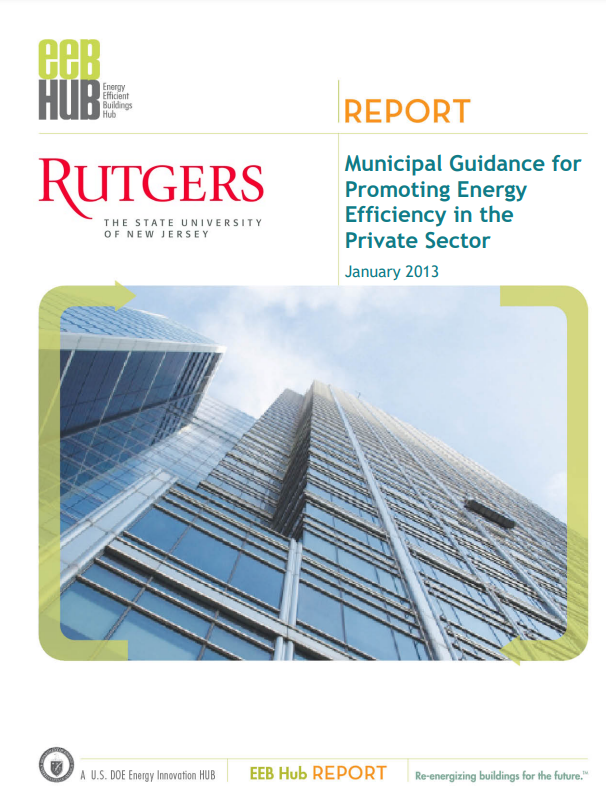This policy brief focuses on how planning and zoning tools at the municipal level and public-private partnerships between municipalities and building owners can increase uptake of AERs. NJ municipalities do not have jurisdiction over building code so are somewhat limited in their ability to impact the design of buildings; however, the Local Redevelopment and Housing Law,1 and planning and zoning per the Municipal Land Use Law (MLUL) provide opportunities to encourage energy efficiency. The Municipal Land Use Law is the legislative basis of planning and zoning boards of adjustment and defines the powers of these boards.
The Local Redevelopment and Housing Law empowers municipalities to act to improve areas in need of redevelopment. Redevelopment plans provide an opportunity to incorporate specific energy efficiency measures
into redevelopment projects.
The Rutgers Center for Green Building developed municipal guidance that will be delivered through Sustainable Jersey, an established and successful marketing channel that reaches all NJ municipalities. Elements of this guidance are currently being piloted with West Windsor Township in Mercer County, NJ.
This guidance also serves as a training tool for municipalities as well as developers and business owners in the private sector. Specific training recommendations are outlined, including standards ASHRAE 189.1, ICC-700, and IgCC and sessions on energy modeling, life cycle costing, and ENERGY STAR Portfolio Manager.
